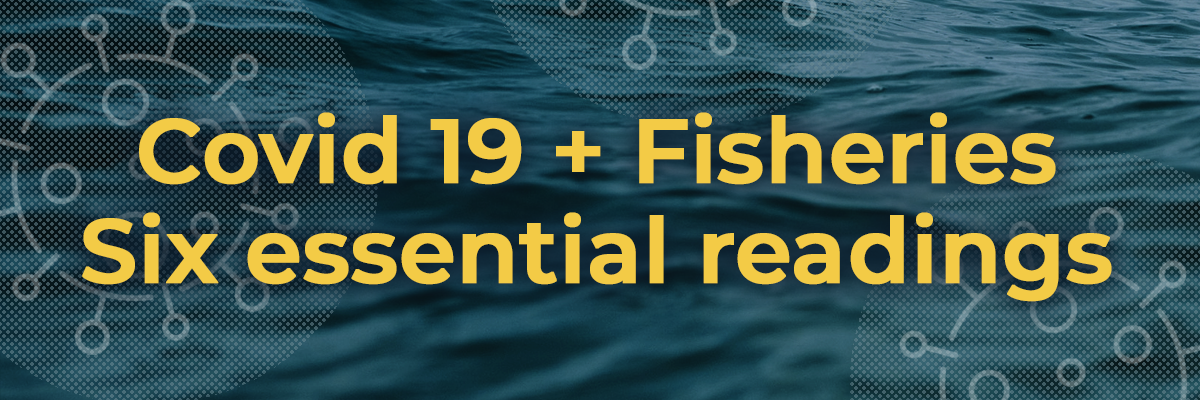
After a year (or more, depending on where you’re located) of Covid-19 pandemic lockdowns almost nothing about our work in fisheries looks the same as it did before. At the beginning of 2020, we were deeply embedded in on-the-ground projects with small scale fisheries in Peru and Chile, and developing projects in Vietnam and the Caribbean. As the virus first spread, it became too risky for many of our staff and fisher colleagues to continue to work or fish in the field, especially as personal protective equipment was difficult to access in those initial months. And so we began a period of rapid transition, pivoting our efforts to ensure we could support the immediate needs of fishers and their communities.
The entire seafood industry faced similar disruption and upheaval, from small scale fisher co-ops all the way up to multinational giants. Fishers mourned the loss of life and the loss of their way of life, at least temporarily. Communities strategized to ensure that everyone could still be fed and taken care of, even as fishing ceased and distribution became more complex. Nonprofits and funders collaborated to reroute money to new urgent initiatives, and to imagine what the sector might look like in a post-Covid world.
All these impacts, stories, and strategic changes have been documented by organizations and writers around the world, who have tracked change in the industry and shared their reports and findings. Together, these narratives comprise a vital body of knowledge about a world in flux, and a resilient industry full of dedicated, innovative workers.
We’ve been tracking the research and reporting on Covid and fisheries over the past year — and there’s a lot of it. Thankfully, several organizations including Blue Ventures, FAO, SFP, and TBTI have been compiling expansive databases of Covid-19 and fisheries resources for those looking to really dig in (see links at end of this post). If you only have time to check out a few, here’s our recommendation of six essential readings on Covid-19 and fisheries from the past year:
Mexican fishing communities’ resilience to COVID-19: Economic and social impacts
This great report from Mexico-based COBI (Comunidad y Biodiversidad, A.C.) reflects on the immediate social and economic impacts of Covid-19 on fishing communities, and concludes with a series of recommendations expressed by the fishing sector. COBI spoke with fishers in eight Mexican states to understand the social and economic impacts of the pandemic, as well as the roles of the State, the distribution of support, the effects on health, local solutions applied by fishers, gender equality, the use of technology, and impact on the environment. This is one in a series of reports COBI has produced; we encourage folks to check them all out here, including a report on Mexican fisher perceptions of environmental impacts due to Covid-19.
NOAA Fisheries Updated Impact Assessment of the COVID-19 Crisis on the U.S. Commercial Seafood and Recreational For-Hire/Charter Industries
This short report provides a snapshot of the effects of Covid-19 on the seafood and fishing industry through summer 2020. Overall, this sobering assessment reveals a deteriorating situation beginning in March 2020. NOAA Fisheries plans to continue to use this information to identify economic hardship where it exists and identify pathways for enhancing the resilience of the U.S. seafood and fisheries industries.
Voices from the ground: From COVID-19 to radical transformation of our food systems
This report presents the experiences and concerns of millions of small-scale food producers, workers, consumers, women and youth represented in the organizations that participate in the Civil Society and Indigenous Peoples Mechanism. An impressive grass-roots effort, the report highlights the ways that globalized food supply systems are subject to multiple fragilities and generate deep and often fatal inequalities.
Conservation in the time of COVID-19: How are small-scale fishing communities responding to the impacts of COVID-19?
Blue Ventures has been collecting observations from their field teams and partners, identifying some of the impacts of Covid-19 on fishers, and charting trends and responses. These insights and infographics highlight just how widely Covid-19 impacts vary depending on local ecosystems, markets, and contexts.
Covid-19: The impact on small-scale fishers—A perspective from Ocean View
This article, from the PLAAS institute for poverty, land, and agrarian studies in South Africa, provides a focused look at Covid’s impacts on fishers in Ocean View near Cape Town. “The Covid-19 pandemic further illustrates how insignificant and how severely neglected we, as small-scale fishers, are as a legitimate fisheries resource user-group” notes one veteran fisher. The article ends with a series of policy suggestions and recommendations for increasing fisher food security and livelihoods.
Early effects of COVID-19 on US fisheries and seafood consumption
This research article provides insights into trends in US seafood and fishing industries based on unconventional data collection and analysis, including use of Google Analytics. The findings highlight how varied responses have been across the seafood sector, and the article provides suggestions for how policy-makers can utilize this information to help support those most vulnerable to impacts.
Covid-19 and Fisheries Collected Resources:
TBITI (Too Big To Ignore) News Library
Sustainable Fisheries Partnership’s Resource Library
FAO’s Information on COVID-19 and small-scale fisheries
Blue Ventures’ Resource Library
Published Mar 25, 2021




